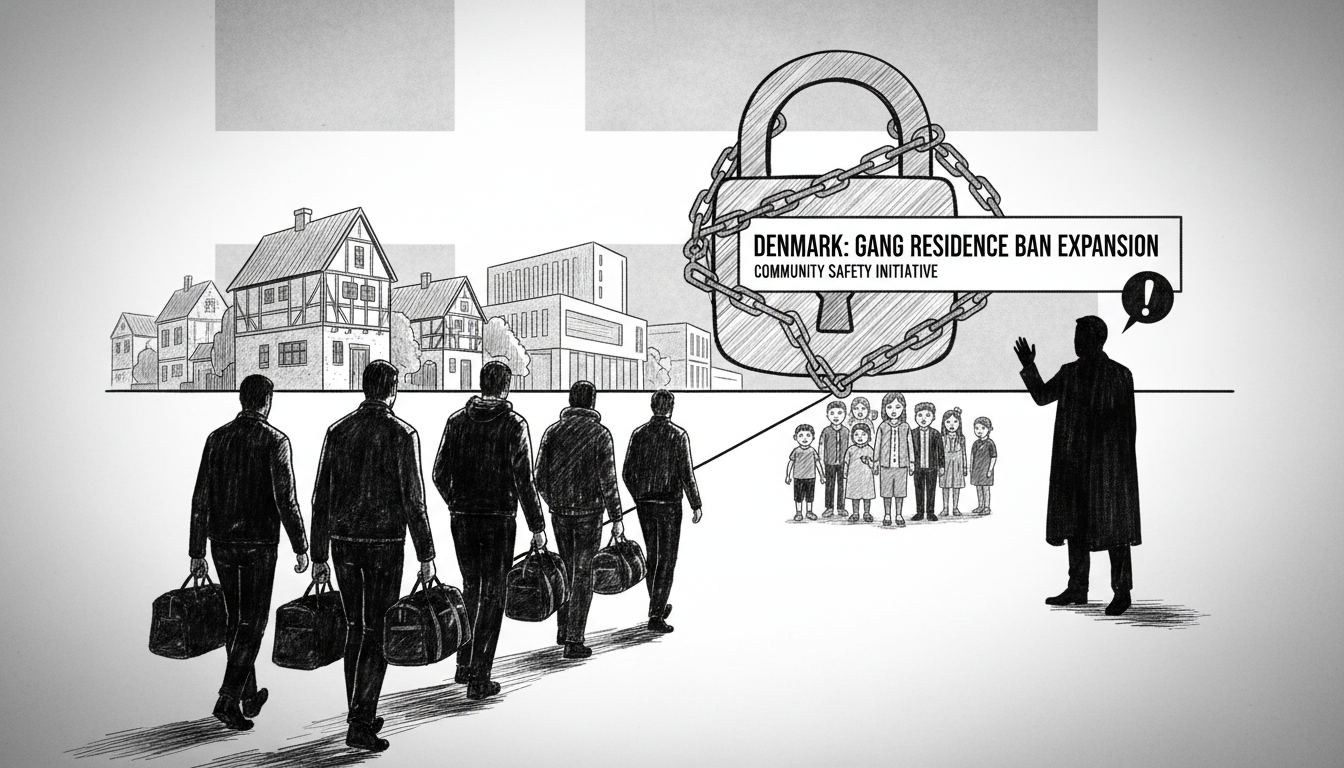The Danish government has proposed expanding residence restrictions for convicted gang members. Under the new plan, individuals subject to residence bans would be prohibited from relocating to adjacent municipalities. Justice Minister Peter Hummelgaard announced the measures targeting both gang networks and multi-generational criminal families.
Gang activity creates insecurity in our communities, Hummelgaard stated. Citizens understandably feel unsafe when convicted gang members settle in their neighborhoods. The expanded restrictions would prevent offenders from simply moving to nearby towns and continuing their criminal operations from new locations.
This initiative follows documented cases in Kerteminde Municipality, where gang members previously subject to residence bans in Odense subsequently relocated to the neighboring community. The pattern revealed how criminal groups exploit geographical limitations in current restrictions.
The Ministry of Justice currently awaits recommendations from the Criminal Law Council regarding potential amendments to the Penal Code's residence ban provisions. These changes could enable expanded prohibition zones beyond current municipal boundaries.
Parallel measures address children in criminal families through enhanced information sharing. Police would gain authority to notify municipal authorities about minors connected to criminal networks through the existing SSP collaboration framework between schools, social services, and law enforcement.
We cannot passively watch crime pass from generation to generation in deeply criminal families, Hummelgaard emphasized. The shared information would help municipalities assess whether children require intervention, including potential out-of-home placement under child protection laws.
The government intends to present a comprehensive anti-gang package before year's end. This represents Denmark's latest effort to combat organized crime through geographical restrictions and early intervention strategies.
Denmark's approach reflects broader Nordic concerns about gang violence and territorial control. The country has gradually strengthened legal tools against organized crime since the 2000s, when biker gang conflicts first highlighted the need for specialized legislation. The proposed measures test the balance between public safety and mobility rights, potentially setting precedents for neighboring countries facing similar challenges.
International observers note Denmark's increasingly sophisticated approach to gang prevention. While other nations focus primarily on enforcement, the Danish model combines restrictive measures with social intervention, particularly for vulnerable youth in criminal environments. The coming legislative package will reveal whether this dual approach can effectively disrupt gang recruitment while protecting communities.

